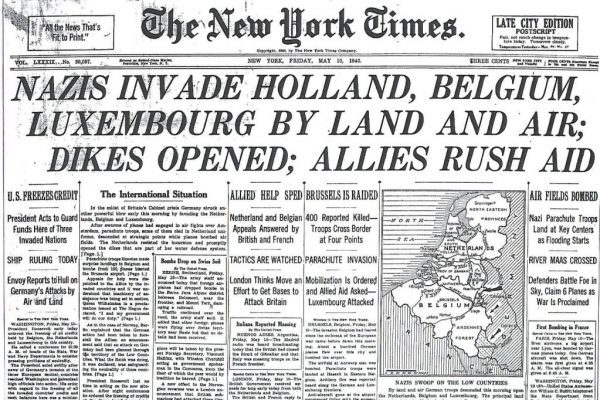Dorothea and Hendrikus Van der Sande

“My mother’s name was Dorothea. She was French born, but grew up in Brussels, Belgium. My father’s name was Hendrikus. He was called ‘Henk’ until he changed it to ‘Hank’ after World War II. Driven from their village in the Netherlands, my parents moved to Amsterdam where they kept safe Jews and others from Nazi scrutiny. After the war, they were among those recognized for their role in saving lives.
My favorite memory of my parents is that we — as a family — took a long walk around a lake every Sunday.”
– Vivian Kincaid ’80
Dorothea and Hendrikus Van der Sande, remembered by their daughter, Vivian Kincaid
Vivian Kincaid’s parents not only defied the Germans but saved many people from their clutches.
In 1940, when the Germans invaded the Netherlands, we were living in a small town in the southern part of the country. Some of my parents’ friends were taken as hostages because they were part of the Dutch government. For us, life went on fairly normal until 1942. My brother, his friends and I liked to play on the moors. One day a German soldier told us we were no longer allowed to, for they were putting up barbed wire. As soon as the wire was in place, every tree behind it was cut down for as far as we could see. News of barracks being built made the rounds. Soon groups of children, women and men were marched from the station to the camp along the highway in front of our house. The distance was at least 50 kilometers.
Members of our church as well as other villagers prepared meals for the camp’s inmates. Since this was a transition camp, the rules were not as stringent. Occasionally someone, usually a person who had been picked up on a “minor” crime, was let go. Members of the church group kept an eye out so that he or she would be picked up, taken to a place to be deloused, and further assisted with clean clothes, food, and a train ticket.
One evening in early 1944, two German soldiers knocked on our front door. For some reason, our house was required for a Dutch collaborator and his family. We were given one day to leave. Since my father’s job was now in Amsterdam, my parents, after distributing five children with friends, went there to find a new place.
Once in Amsterdam, my parents really got involved with hiding various people. On the third floor of our apartment, my father had a carpenter cut out a “hole” behind the wainscoting where several people could sit in case of an unexpected inspection. We children were told to never talk about people coming through. If my parents had been caught, the whole family would have been transported to one of the camps in Germany or further.
In the spring of 1944, a man came to live with us. We used to laugh at him because he would go out dressed as a woman with kerchief. He really looked funny and ugly. It was only after we had been liberated in May 1945 that we found out that he was a Jew, whose wife, parents, and an aunt and uncle were discovered in their hiding place. He was the only one who escaped.
After the Dutch queen returned to the Netherlands, my parents, with hundreds of other Dutch people, were recognized for their contribution in saving the hunted.